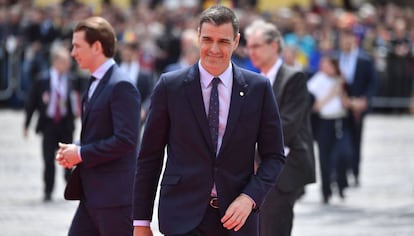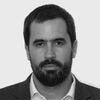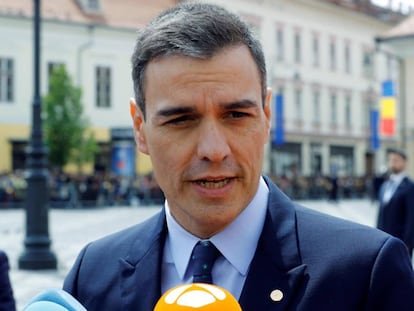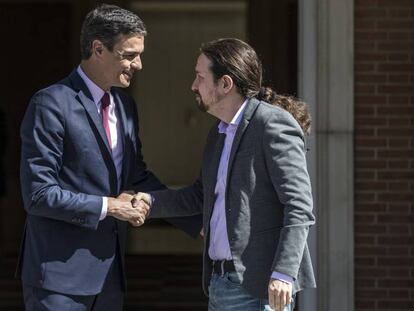Acting PM uses election success to strengthen Spain’s position in the EU
Pedro Sánchez has become a leading figure of the European Socialists, a role he hopes to take advantage of to give the country a more important role in the 28-member bloc


Acting Spanish Prime Minister Pedro Sánchez of the Socialist Party (PSOE) is looking to leverage his party’s success at the April 28 general election to position Spain in key positions of power in the European Parliament. At the recent polls, the PSOE won the highest number of seats in Congress – a victory that was celebrated not only by the left in Spain, but also in Europe.
Spain has a decisive role to play in the future of the European Commission
Acting PM Pedro Sánchez
Buoyed by this win, Sánchez has taken advantage of the weakness of European social democratic parties to become the leading representative of the bloc. At the informal European Union summit in Sibiu in Romania on Thursday, the social democratic chiefs named Sánchez as the negotiator for the Party of European Socialists ahead of the European election on May 26.
Sánchez is the only social democratic leader governing a large EU country, and one of the few in the entire 28-member bloc, joined only by the leaders of Portugal, Sweden, Romania and Malta. In Finland, the Social Democratic Party may also take power in that country if government negotiations are successful after winning the election on April 14.
Sánchez’s new standing was evident at the EU summit, where his arrival on Thursday was met with great expectation. This role was also evident at the meeting of the Party of European Socialists before the summit, where Sánchez was congratulated by European leaders for his election win. According to sources close to the Spanish government, the Portuguese Prime Minister, António Costa, trusts that PSOE’s triumph at the polls will have a positive effect on his party’s chances at the Portuguese elections on October 6.
While Spain held key roles in the 1990s, it has since lost the influence a country its size should have in the EU
After speaking with the Spanish press on Thursday, Sánchez talked before international media, which was an unusual occurrence. The acting prime minister also took part in several bilateral meetings, which is also uncommon and shows the high level of interest in the Spanish leader.
Sánchez however, was forced to quickly return to Spain before the end of the EU summit, as the medical condition of Alfredo Pérez Rubalcaba – a veteran PSOE politician who is in a serious condition after suffering a stroke – worsened.
Before returning, Sánchez was able to speak to German Chancellor Angela Merkel, French President Emmanuel Macron and Italian Prime Minister Giuseppe Conte. He also used his moment in the sun to call for Spain to have more power in key roles in the EU. “Spain has a decisive role to play in the future of the European Commission,” he said.
Spain does not currently hold any important positions in the EU. While it held key roles in the 1990s, it has since lost the influence that a country its size should have in the bloc. Sánchez is in the perfect position to assume more power in the EU, but it won’t be easy. The politics within the bloc are very complex and a lot is hanging on whether the Socialists will be able to secure more seats at the upcoming European elections than the conservative Popular Party (PP).
English version by Melissa Kitson.









































